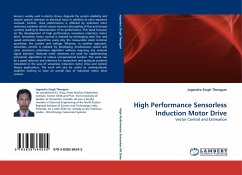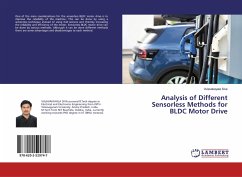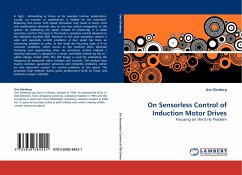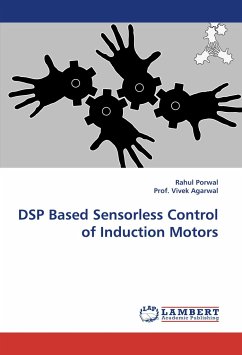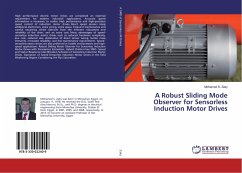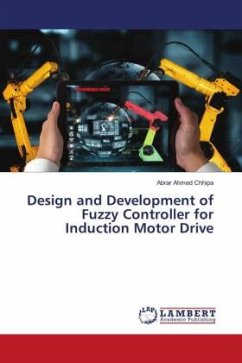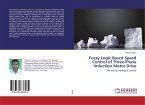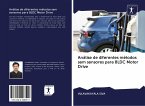Sensors, widely used in electric drives, degrade the system reliability and require special attention to electrical noise in addition to extra expenses involved. Further, drive performance is affected by unknown rotor resistance variation which causes incorrect decoupling of flux and torque currents leading to deterioration of its performance. This book focusses on the development of high performance sensorless induction motor drive. Sensorless vector control is realized by developing rotor flux and speed estimation algorithms using only the measurable stator terminal quantities: the current and voltage. Whereas, in another approach, sensorless control is realized by developing simultaneous speed and rotor resistance estimation algorithm without requiring any external signal injection. Reduced order observers are used for implementing estimation algorithms to reduce computational burden. This work can be a good resource and reference for researchers and graduate students interested in the area of sensorless induction motor drive and control theory applications. The work will also be useful to undergraduate students wishing to have an overall idea of induction motor drive control.
Bitte wählen Sie Ihr Anliegen aus.
Rechnungen
Retourenschein anfordern
Bestellstatus
Storno

